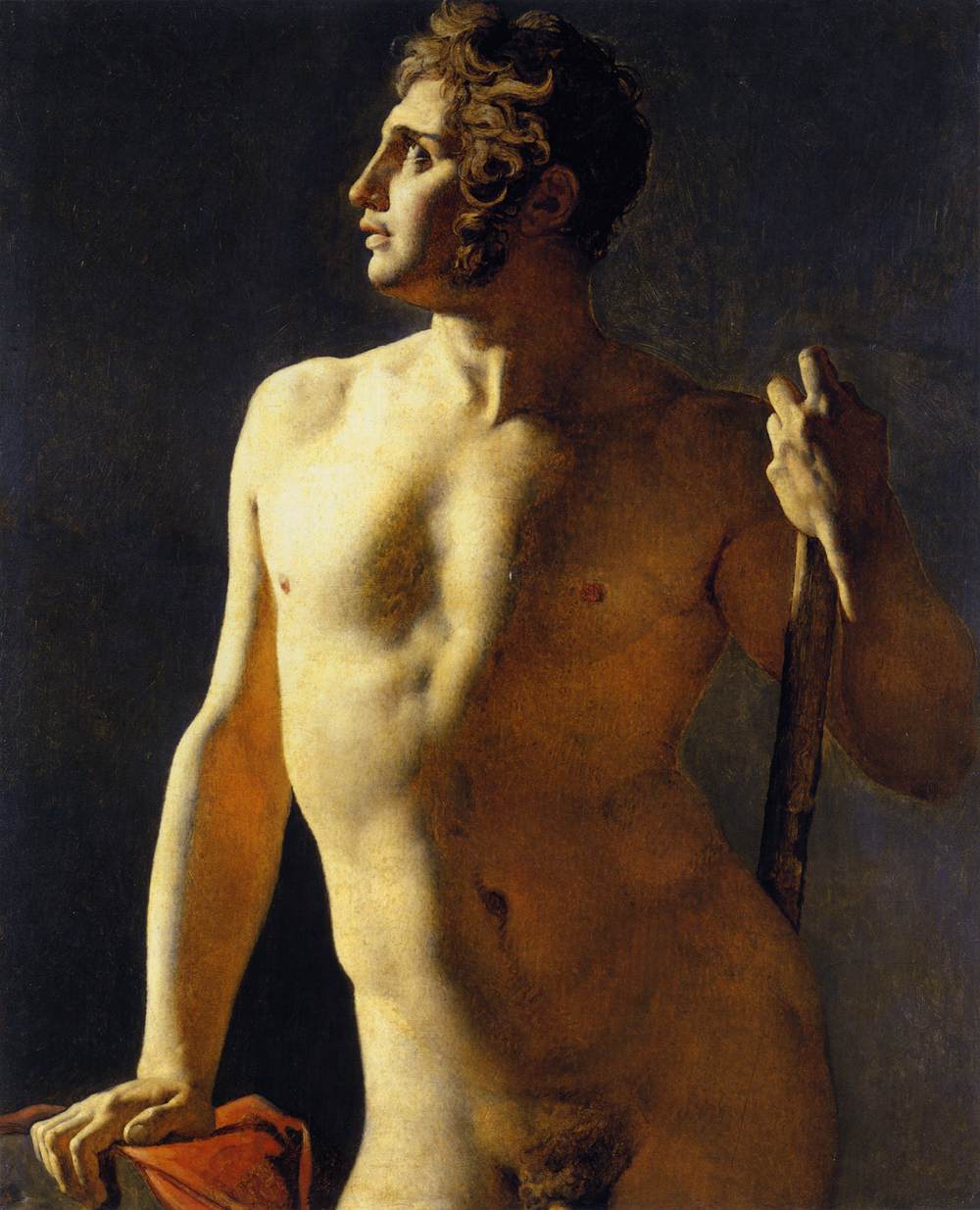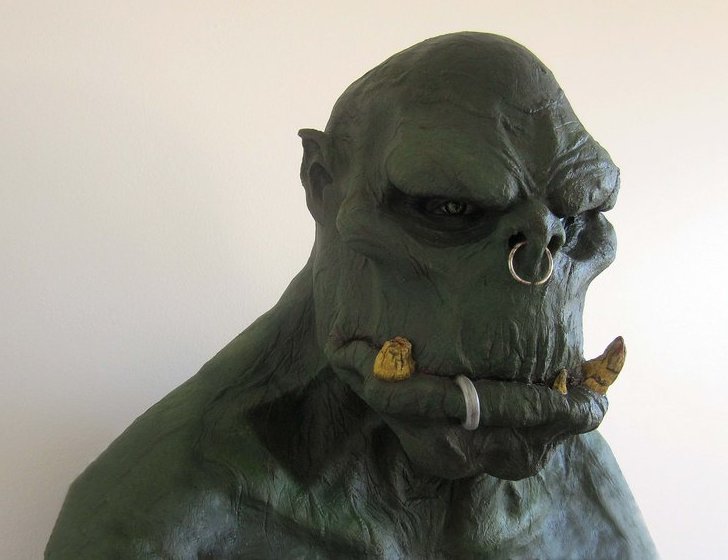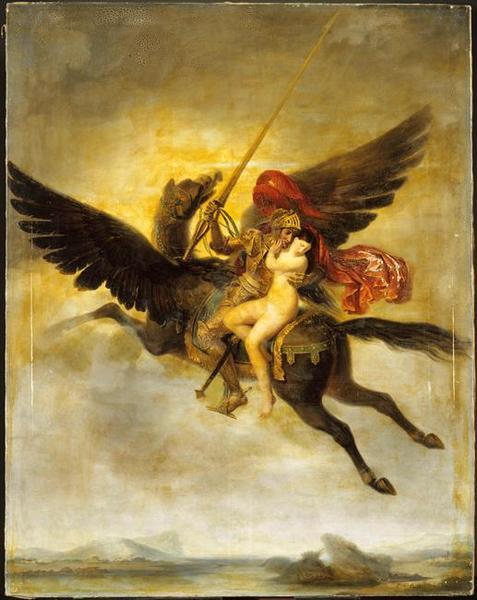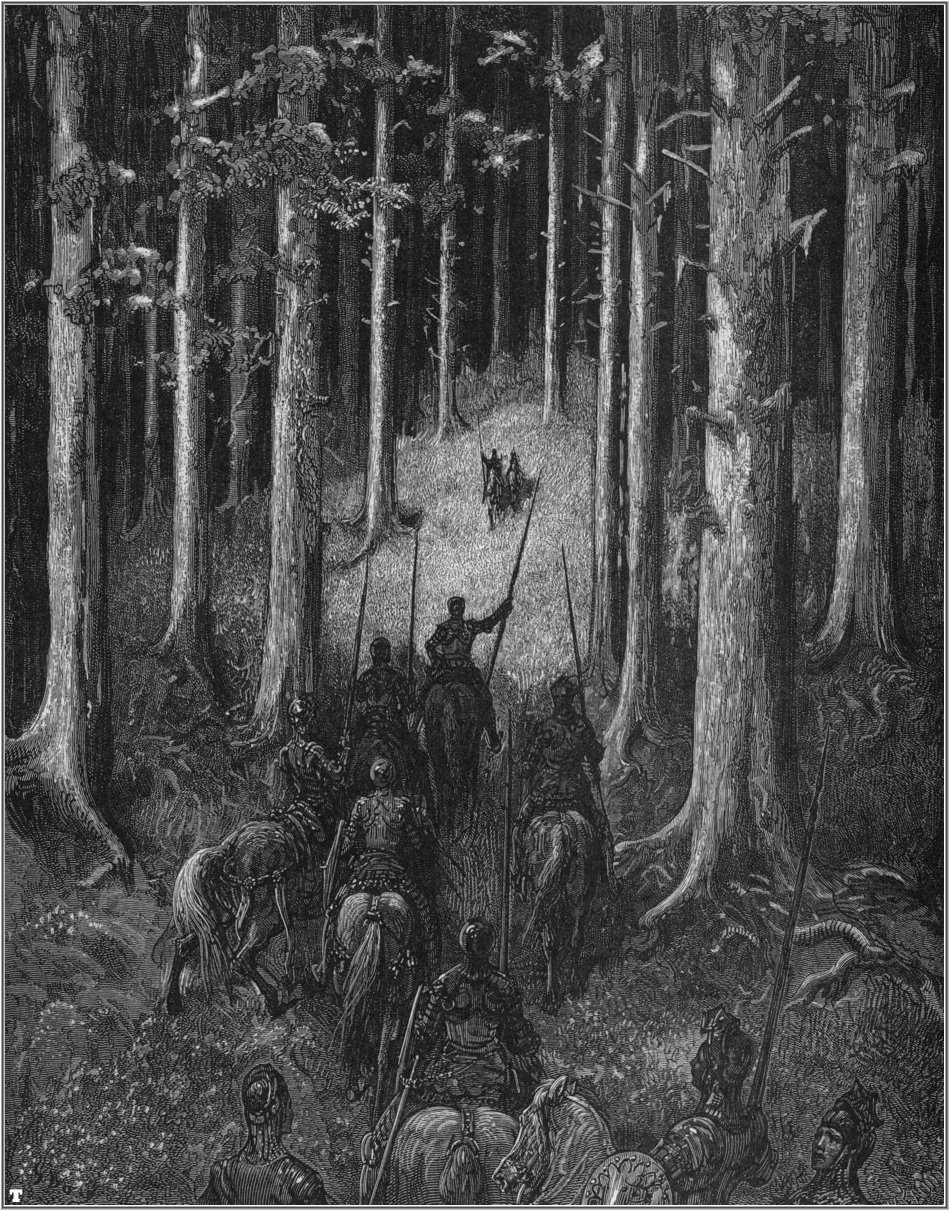|
Ruggiero (character)
Ruggiero (often translated Rogero in English) is a leading character in the Italian romantic epics ''Orlando Innamorato'' by Matteo Maria Boiardo and ''Orlando Furioso'' by Ludovico Ariosto. Ruggiero had originally appeared in the twelfth-century French epic '' Aspremont'', reworked by Andrea da Barberino as the chivalric romance ''Aspramonte''.''The Cambridge History of Italian Literature'', Peter Brand and Lino Pertile, eds. Cambridge: Cambridge University Press, 1996, p. 168. In Boiardo and Ariosto's works, he is supposed to be the ancestor of Boiardo and Ariosto's patrons, the Este family of Ferrara, and he plays a major role in the two poems. Story He is the son of a Christian knight (Ruggiero II of Reggio Calabria, a descendant of Astyanax, son of Hector) and a Saracen lady (Galaciella, daughter of Agolant, king of Africa). When Ruggiero's father is betrayed and murdered, his mother escapes to the sea by boat, lands on the shores of Libya and dies after giving birth to twins ... [...More Info...] [...Related Items...] OR: [Wikipedia] [Google] [Baidu] |
Jean-Auguste-Dominique Ingres
Jean-Auguste-Dominique Ingres ( , ; 29 August 1780 – 14 January 1867) was a French Neoclassicism, Neoclassical Painting, painter. Ingres was profoundly influenced by past artistic traditions and aspired to become the guardian of academic orthodoxy against the ascendant Romanticism (art), Romantic style. Although he considered himself a History painting, painter of history in the tradition of Nicolas Poussin and Jacques-Louis David, it is his portraits, both painted and drawn, that are recognized as his greatest legacy. His expressive distortions of form and space made him an important precursor of modern art, influencing Picasso, Matisse and other modernists. Born into a modest family in Montauban, he travelled to Paris to study in the studio of Jacques-Louis David, David. In 1802 he made his Paris Salon, Salon debut, and won the Prix de Rome for his painting ''The Ambassadors of Agamemnon in the tent of Achilles''. By the time he departed in 1806 for his residency in Rom ... [...More Info...] [...Related Items...] OR: [Wikipedia] [Google] [Baidu] |
Christians
Christians () are people who follow or adhere to Christianity, a monotheistic Abrahamic religion based on the life and teachings of Jesus Christ. The words ''Christ'' and ''Christian'' derive from the Koine Greek title ''Christós'' (Χριστός), a translation of the Biblical Hebrew term ''mashiach'' (מָשִׁיחַ) (usually rendered as ''messiah'' in English). While there are diverse interpretations of Christianity which sometimes conflict, they are united in believing that Jesus has a unique significance. The term ''Christian'' used as an adjective is descriptive of anything associated with Christianity or Christian churches, or in a proverbial sense "all that is noble, and good, and Christ-like." It does not have a meaning of 'of Christ' or 'related or pertaining to Christ'. According to a 2011 Pew Research Center survey, there were 2.2 billion Christians around the world in 2010, up from about 600 million in 1910. Today, about 37% of all Christians live in the Am ... [...More Info...] [...Related Items...] OR: [Wikipedia] [Google] [Baidu] |
Orc (monster)
An Orc (or Ork) is a fictional humanoid monster like a goblin. Orcs were brought into modern usage by the fantasy writings of J. R. R. Tolkien, especially ''The Lord of the Rings''. In Tolkien's works, Orcs are a brutish, aggressive, ugly, and malevolent race of monsters, contrasting with the benevolent Elves. There is a suggestion, among several somewhat contradictory origin stories, that they are a corrupted race of elves. Mythological monsters with names similar to "orc" can be found in the Old English poem ''Beowulf'', in Early Modern poetry, and in Northern European folk tales and fairy tales. Tolkien stated that he took the name from ''Beowulf''. The orc appears on lists of imaginary creatures in two of Charles Kingsley's mid-1860s novels. Tolkien's concept of orcs has been adapted into the fantasy fiction of other authors, and into games of many different genres such as ''Dungeons & Dragons'', ''Magic: The Gathering'', and ''Warcraft''. Etymology Old English ... [...More Info...] [...Related Items...] OR: [Wikipedia] [Google] [Baidu] |
Melissa (sorceress)
Melissa is a fictional good sorceress in the Matter of France. She is said to have been an apprentice of Merlin and guards his tomb, though she does not appear in older stories about him. In ''Orlando Furioso'', she is instrumental in the love affair of Ruggiero and Bradamante, whom she is determined will one day marry. Whenever their relationship is threatened, she brings them back together. Melissa conjures Ruggiero and Bradamante's descendants and foretells their futures. When Ruggiero has fallen victim to the enchantments of Alcina, she comes to his rescue by restoring his memory of his love for Bradamante, and releasing him from the spell which held him captive on Alcina's Isle. Later, Ruggiero loses a combat to determine who shall win the hand of Bradamante; despondent, he goes into the woods to starve himself to death. Melissa hears of his plight and reveals the truth to him: that he had lost in combat not to his rival, but to Bradamante herself; therefore, there is no rea ... [...More Info...] [...Related Items...] OR: [Wikipedia] [Google] [Baidu] |
Alcina
''Alcina'' ( HWV 34) is a 1735 opera seria by George Frideric Handel. Handel used the libretto of ''L'isola di Alcina'', an opera that was set in 1728 in Rome by Riccardo Broschi, which he acquired the year after during his travels in Italy. Partly altered for better conformity, the story was originally taken from Ludovico Ariosto's ''Orlando furioso'' (like those of the Handel operas ''Orlando'' and ''Ariodante''), an epic poem. The opera contains several musical sequences with opportunity for dance: these were composed for dancer Marie Sallé. Performance history ''Alcina'' was composed for Handel's first season at the Theatre Royal, Covent Garden in London. It premiered on 16 April 1735. Like the composer's other works in the opera seria genre, ''Alcina'' fell into obscurity; after a revival in Brunswick in 1738 it was not performed again until a production in Leipzig in 1928. The Australian soprano Joan Sutherland sang the role in a production by Franco Zeffirelli in wh ... [...More Info...] [...Related Items...] OR: [Wikipedia] [Google] [Baidu] |
Hippogriff
The hippogriff, or sometimes spelled hippogryph ( el, Ἱππόγρυπας), is a legendary creature with the front half of an eagle and the hind half of a horse. It was invented by Ludovico Ariosto in his ''Orlando Furioso'', at the beginning of the 16th century. Within the poem, the hippogriff is a steed born of a mare and a griffin—something considered impossible. It is extremely fast and is presented as being able to fly around the world and to the Moon. It is ridden by magicians and the wandering knight Ruggiero, who, from the creature's back, frees the beautiful Angelica. Astolfo also borrows the hippogriff from Bradamante to go search for Roland's wits. Sometimes depicted on coats of arms, the hippogriff became a subject of visual art in the 19th century, when it was often drawn by Gustave Doré. Etymology The word ''hippogriff'', also spelled ''hippogryph'', is derived from the grc, ἵππος , meaning "horse", and the Italian ''grifo'' meaning "griffin" (from Lati ... [...More Info...] [...Related Items...] OR: [Wikipedia] [Google] [Baidu] |
Renaud De Montauban
Renaud de Montauban (; also spelled ''Renaut'', ''Renault'', Italian: ''Rinaldo di Montalbano'', Dutch: ''Reinout van Montalba(e)n'') was a legendary hero and knight which appeared in a 12th-century Old French ''chanson de geste'' known as ''The Four Sons of Aymon''. The four sons of Duke Aymon are Renaud, Richard, Alard and Guiscard, and their cousin is the magician Maugris (French: ''Maugis'', Italian: ''Malagi'', ''Malagigi''). Renaud possesses the magical horse Bayard and the sword Froberge (Italian: ''Fusberta'', ''Frusberta'', French: ''Flamberge''). The story of Renaud was popular across Europe. The tale was adapted into Dutch, German, Italian and English versions throughout the Middle Ages, inspired the Old Icelandic '' Mágus saga jarls'', and also incited subsequent sequels and related texts that form part of the Doon de Mayence cycle of ''chansons''. Renaud, as Rinaldo, is an important character in Italian Renaissance epics, including ''Morgante'' by Luigi Pulci, ''Orl ... [...More Info...] [...Related Items...] OR: [Wikipedia] [Google] [Baidu] |
Orlando (character)
Roland (; frk, *Hrōþiland; lat-med, Hruodlandus or ''Rotholandus''; it, Orlando or ''Rolando''; died 15 August 778) was a Frankish military leader under Charlemagne who became one of the principal figures in the literary cycle known as the Matter of France. The historical Roland was military governor of the Breton March, responsible for defending Francia's frontier against the Bretons. His only historical attestation is in Einhard's ''Vita Karoli Magni'', which notes he was part of the Frankish rearguard killed in retribution by the Basques in Iberia at the Battle of Roncevaux Pass. The story of Roland's death at Roncevaux Pass was embellished in later medieval and Renaissance literature. The first and most famous of these epic treatments was the Old French ''Chanson de Roland'' of the 11th century. Two masterpieces of Italian Renaissance poetry, the ''Orlando Innamorato'' and ''Orlando Furioso'' (by Matteo Maria Boiardo and Ludovico Ariosto respectively), are even further ... [...More Info...] [...Related Items...] OR: [Wikipedia] [Google] [Baidu] |
Rodomonte
Rodomonte (or Rodamonte) is a major character in the Italian romantic epic poems ''Orlando innamorato'' by Matteo Maria Boiardo and ''Orlando furioso'' by Ludovico Ariosto. He is the King of Sarza and Algiers and the leader of the Saracen army which besieges Charlemagne in Paris. He is in love with Doralice, Princess of Granada, but she elopes with his rival Mandricardo. He tries to seduce Isabella but she tricks him into killing her by mistake. In remorse, Rodomonte builds a bridge in her memory and forces all who cross it to pay tribute. When the "naked and mad" Orlando arrives at the bridge, it is Rodomonte, the pagan, who throws him into the river below. They both swim ashore, but Orlando who is naked and is unimpeded by heavy armor gets to the shore first. Finally, Rodomonte appears at the wedding of Bradamante and Ruggiero and accuses Ruggiero of treason for converting to Christianity and abandoning the Saracen cause. The two fight a duel and Rodomonte is killed. Rodomonte's ... [...More Info...] [...Related Items...] OR: [Wikipedia] [Google] [Baidu] |
Angelica (character)
Angelica is a princess in the epic poem ''Orlando innamorato'' by Matteo Maria Boiardo. She reappears in the saga's continuation, ''Orlando furioso'' by Ludovico Ariosto, and in various later works based on the two original ''Orlando'' pieces. The narratives are part of the Matter of France, a cycle of legendary history stories based on the adventures of Charlemagne and his paladins. ''Orlando Innamorato'' In ''Orlando Innamorato'', Angelica is introduced as the daughter of Galafrone, the king of "Cathay", or "China". But this seeming inconsistency can be resolved. Boiardo considered Cathay to be a city, and "Cathay was a city in India inferior or Serica" according to the Mappamondo Borgiano. She comes to Charlemagne's court with her brother Argalia (who assumes the identity of a knight named Uberto dal Leòne). (tr.), ''Orlando in Love'', I.i. and p. 671. note to I.i.25. All the knights are smitten with her, especially the cousins Orlando (character), Orlando (Roland) and Rena ... [...More Info...] [...Related Items...] OR: [Wikipedia] [Google] [Baidu] |
Agolant
Agolant or Agolante is a fictional character in Medieval and Renaissance romantic epics dealing with the Matter of France, including ''Orlando innamorato'' by Matteo Maria Boiardo and '' Orlando furioso'' by Ludovico Ariosto. He is a Saracen king from Africa. The character appears in the '' Historia Caroli Magni'', sometimes known as the ''Pseudo-Turpin Chronicle'', a 12th-century Latin forged chronicle of legendary material about Charlemagne's alleged conquest of Spain. In this text, Agolant, briefly, reconquers Spain from Charlemagne. In the subsequent war, several miracles occur, including flowers sprouting from the lances of the knights. Another war has Agolant invading south-western France and besieging the city of Agen, but he is forced to retreat to Pampeluna (Pamplona). In a last war, Charlemagne's great army sieges Pampeluna. After the death of Agolant, Charlemagne's troops pursue the Saracens through Spain. Agolant is a central character in the late 12th century ... [...More Info...] [...Related Items...] OR: [Wikipedia] [Google] [Baidu] |
Saracen
upright 1.5, Late 15th-century German woodcut depicting Saracens Saracen ( ) was a term used in the early centuries, both in Greek and Latin writings, to refer to the people who lived in and near what was designated by the Romans as Arabia Petraea and Arabia Deserta. The term's meaning evolved during its history of usage. During the Early Middle Ages, the term came to be associated with the tribes of Arabia. The oldest known source mentioning "Saracens" in relation to Islam dates back to the 7th century, in the Greek-language Christian tract ''Doctrina Jacobi''. Among other major events, the tract discusses the Muslim conquest of the Levant, which occurred after the rise of the Rashidun Caliphate following the death of the Islamic prophet Muhammad. The Roman-Catholic church and European Christian leaders used the term during the Middle Ages to refer to Muslims—usually Arabs, Turks, and Iranians. By the 12th century, "Saracen" had become synonymous with "Muslim" in Medieva ... [...More Info...] [...Related Items...] OR: [Wikipedia] [Google] [Baidu] |








